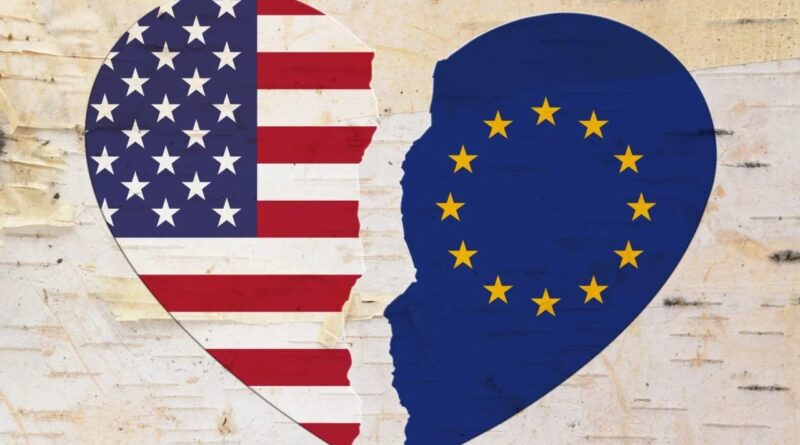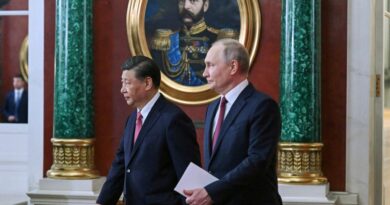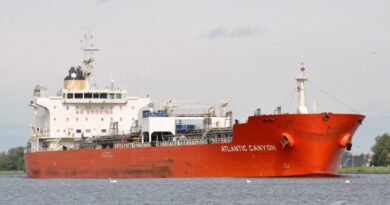Goodwill as Strategic Capital: The Future of Transatlantic Relations
The Most Underestimated Asset in Foreign Policy
In the realm of international relations, goodwill is a vital yet often overlooked resource. Far from a mere diplomatic courtesy, it is a strategic asset—built over time, drawn upon in crises, and essential for alliance cohesion and deterrence.
Goodwill functions like capital, earned through consistency, trust, and mutual sacrifice. It reflects a state’s credibility, soft power, and reputational legitimacy, shaped by past actions and perceived integrity. It can be accumulated, depleted, or squandered, enabling outcomes that hard power alone cannot achieve.
Effective leadership fosters goodwill, granting leaders flexibility in crises as allies extend trust to reliable partners. The U.S. Marshall Plan post-World War II exemplifies goodwill creation, while erratic actions—such as withdrawing from treaties or undermining allies—erode it. The Marshall plan and the US engagements did not erode the country’s wealth, on the contrary it lead to US dominance in global economic and financial order, which in turn resulted in global leader’s tangible benefits.
As the war in Ukraine tests world order and transatlantic unity, the U.S. risks depleting its global goodwill reserves, particularly through actions like threatening allies or endorsing territorial concessions, which undermine global norms.
From Primacy to Hesitation: The Erosion of U.S. Goodwill
Over the past months, U.S. foreign policy has shown signs of drift, marked by transactional leadership, abrupt policy shifts, and disengagement from multilateral frameworks. This has weakened America’s position—not through diminished military strength, but through a loss of goodwill due to leadership failures.
Support Independent Analysis
Help us keep delivering free, unbiased, and in-depth insights by supporting our work. Your donation ensures we stay independent, transparent, and accessible to all. Join us in preserving thoughtful analysis—donate today!
Recent policies, including inconsistent support for Ukraine and provocative rhetoric toward allies, have eroded U.S. credibility. This erosion is evident in Europe’s push for strategic autonomy, declining trust in U.S. security guarantees, and independent decision-making without Washington’s guidance.
Goodwill is not mere sentiment—it is the currency of influence, reflected in treaties, leadership roles, and alliance loyalty. Its depletion hampers U.S. efforts to rally allies against global challenges, as former partners hesitate to align with a diminished goodwill reserve.
The Ukraine Debate: Goodwill as a Strategic Lever
The U.S. proposal for Ukraine to concede territories without security guarantees illustrates how goodwill functions as a strategic asset—and how it can be undermined. By prioritizing short-term deals over long-term trust, such policies risk eroding alliances and emboldening adversaries.
The debate over supplying Taurus missiles to Ukraine offers another case study. These missiles could significantly enhance Ukraine’s ability to disrupt Russian logistics networks, surpassing the capabilities of Storm Shadow or Scalp systems. The UK has unequivocally supported their deployment, demonstrating military resolve and a willingness to expend political capital. Germany, however, has hesitated. Chancellor Olaf Scholz delayed a decision for over a year, citing escalation risks, while Defense Minister Boris Pistorius has opposed the move with vague justifications. This caution reflects not only policy differences but also an uneven distribution of goodwill and risk tolerance within Europe.
Nevertheless, Germany’s potential participation, alongside UK and French efforts, could mark a significant investment in Europe’s geopolitical capital. By committing resources against Russian aggression, Europe is not only arming Ukraine but also bolstering its own security account, building a reservoir of goodwill. Meanwhile, President Macron has enhanced his political capital by leading Europe’s response to U.S. policy shifts and advocating for strategic autonomy.
Europe’s Strategic Maturity and Goodwill Rebalancing
The U.S.-EU disagreement over the “peace” proposal signals a broader shift. For decades, Europe relied on American protection, assuming U.S. goodwill was assured. Now, with U.S. leadership growing volatile, European states are recalibrating—not out of defiance, but necessity.
This shift transcends burden-sharing; it is about diversifying strategic assets. By investing in defense, diplomacy, and crisis response, Europe is increasing its goodwill reserves, both internally and globally. Where goodwill once flowed primarily from the U.S., it is now being generated within Europe through joint arms programs, humanitarian aid, and leadership on sanctions and Ukraine support. This rebalancing marks a shift in intangible power.
The Financial Implications of U.S. Goodwill
Goodwill directly impacts the U.S.’s global financial standing, influencing the appeal of U.S. Treasury bonds, the dollar’s value, and perceptions of American reliability. Rooted in trust, stability, and leadership, this relationship extends beyond economics.
U.S. Treasury securities, long regarded as the world’s safest and most liquid assets, reflect confidence in America’s government, economic fundamentals, legal system, and predictability. They are not merely financial instruments but certificates of trust. Similarly, the dollar’s status as the primary reserve currency hinges on global faith in U.S. goodwill. Political dysfunction, tariff wars, fiscal uncertainties, or international disengagement could reduce demand for Treasuries and weaken the dollar.
The U.S.’s unique position in the global financial system rests on goodwill—the belief in its responsible stewardship. Policies undermining institutions like the Federal Reserve or signaling democratic backsliding erode perceptions of U.S. competence. Isolationist shifts further diminish trust in American leadership, creating a feedback loop where reduced goodwill undermines the U.S.’s financial standing. While globalization cannot be undone, such policies risk diminishing America’s ability to lead and profit from it.
For the United States, leadership cannot be taken for granted—it must be sustained through consistent commitment, reliability, and solidarity. Goodwill, like capital, requires ongoing investment. Neglecting it prompts allies to diversify their dependencies, allows adversaries to exploit uncertainty, and gradually shifts influence elsewhere.
America’s ability to lead hinges not only on its economic or military strength but on the depth of its goodwill in capitals like Paris, London, Berlin, Rome, Warsaw, and Brussels, as well as globally.
If the U.S. withdraws from its leadership role and allows other centers of global power—such as China, Russia, or emerging blocs like the EU or BRICS—to shape the international system, the consequences would be profound and multifaceted:
A U.S. retreat could cede influence over the rules-based international order, which emphasizes democracy, human rights, and free markets. Powers like China, with its state-driven economic model and authoritarian governance, might promote alternative norms, prioritizing sovereignty and non-interference over universal values. Replacing the United Nations or World Trade Organization with frameworks aligned with competing ideologies and visions for the future, where each state maximizes its gains will ultimately lead to wars.
The Lose-Lose Scenario
A U.S. withdrawal from global leadership and NATO could have profound domestic repercussions. Reduced international influence might undermine U.S. leverage in trade negotiations, leading to job losses and economic stagnation, particularly as global demand for U.S. weapons declines. Furthermore, a perceived national decline could exacerbate domestic polarization, fueling contentious debates over America’s role in the world.
Pursuing deals with Russia by abandoning allies and Ukraine echoes Germany’s post-Bismarck illusion that Russian resources could spur economic growth. This approach misjudges geopolitical and geoeconomic realities, particularly in the context of competition with China over critical rare earth resources. By prioritizing business with Russia, the U.S. risks squandering goodwill, a vital asset that governments must balance to address global and national challenges.
Focusing on containing the EU rather than countering Russia, the primary disruptor of the world order, allows other powers to present themselves as predictable leaders, reshaping global norms. This threatens not only U.S. influence but also Europe’s stability and prosperity, transforming transatlantic relations into a lose-lose scenario.
Ilian Vassilev




